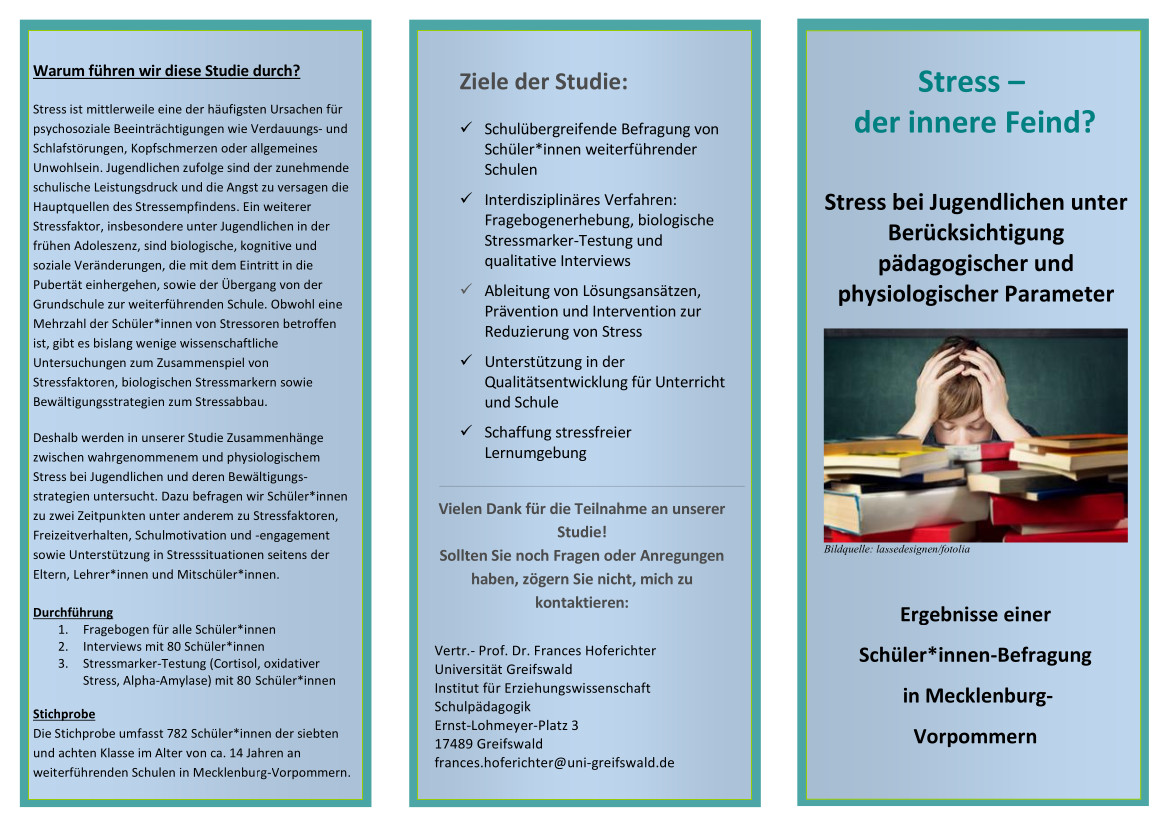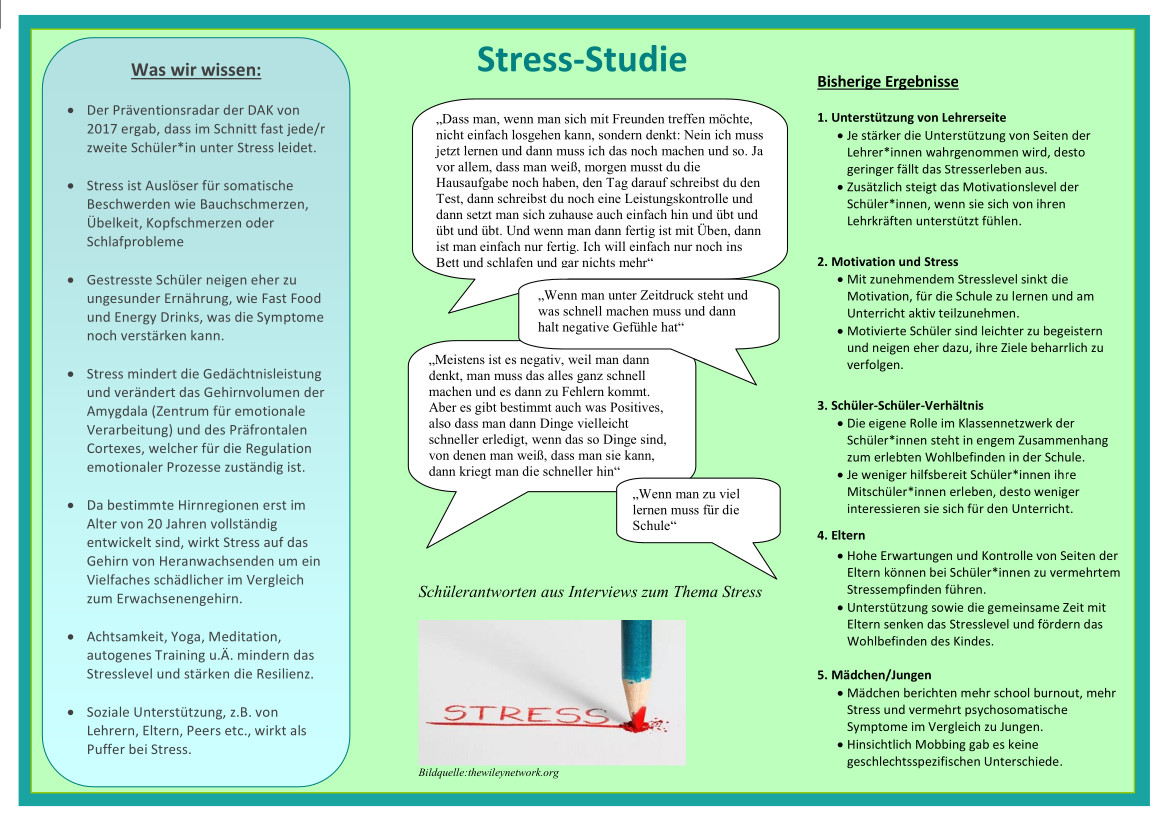School-related stress and school burnout are prevalent among students in secondary educational settings and increase over the school years. Various international studies have identified school-related stress and school burnout as risk factors, jeopardizing students’ well-being and academic development. However, social support or social buffering present an effective and lasting coping strategy and has been identified as one of the basic building block of social, psychological, and biological integrity.
To gain a deeper understanding of the complex interplay of school-related stress in relation to e.g., pressure to perform, bullying, social media use with social support by teachers, peers, and parents, this study applies an interdisciplinary and multimethodological approach to the topic. Secondary school students participate in a longitudinal quantitative and qualitative research study and provide biophysiological stress markers such as cortisol, alpha-amylase, and oxidative stress.
By combining subjective and objective measures of stress in relation to students’ perceived social relationships, this study promises to gain fundamental knowledge on these mechanisms, providing a basis for prevention and intervention that reduce students’ stress levels and support their healthy development.
Granted in 02/2018
Seed funding by University of Greifswald
Project leader: Dr. Frances Hoferichter
PhD student: Sirine Schreier
Student assistant: Elisabeth Aigner
Cooperation partners:
Miriam Hufenbach (Universität Potsdam)
Prof. Geja Hagemann (Maastricht University)
Prof. Hans Grabe (Director of the Department of Psychiatry and Psychotherapy at Greifswald University Medical Center)


